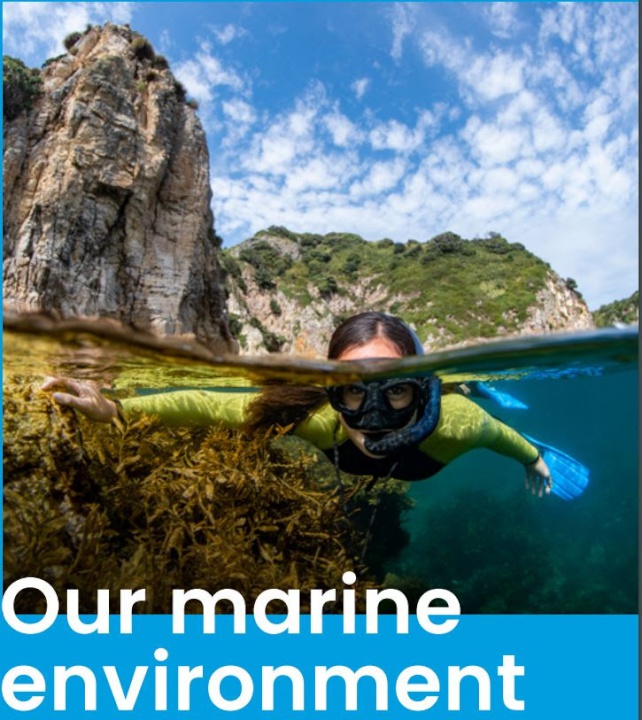
The Environmental
Defence Society (EDS) has welcomed the publication by the
Ministry for the Environment and Stats NZ of Our Marine
Environment 2019, the latest in the reports on the state
of our environment. The report is available here.
“The report is an excellent compilation of data that gives a useful overview of the state of our extensive marine environment, both along our extensive coastline and in the territorial sea and the Exclusive Economic Zone,” said EDS CEO Gary Taylor.
“Whilst the report describes the state of these natural systems, it does not offer management solutions. In many respects that is a strength rather than a weakness of the environmental reporting system: it simply tells us the facts about the state of the marine domain and leaves consideration of responses to others.
“As expected, there are some big issues to address. These include many marine species and habitats that are in serious trouble. Of the sample investigated, the report finds that 22% of marine mammals, 90% of seabirds and 80% of shorebirds are threatened with or actually at risk of extinction. This is very seriously troubling.
“Further, human activities at
sea are having a significant adverse effect on vast swathes
of the seabed habitat from trawling and dredging. There are
continuing threats from biological incursions brought here
by shipping.
“Human activities on land are producing
pollution, sediment and large volumes of litter including
plastics. These come from both cities and from agriculture
and forestry.
“Climate change is causing acidification
of the sea, rising sea levels and warming of the ocean.
These all have impacts on shellfish, on coastal settlements
and on the rate of CO2 absorption by the ocean.
“In our
view the report demonstrates clearly that we need to take a
fresh and comprehensive look at how we can better manage our
oceans in the 2020s and beyond.
“We should ask whether the panoply of laws and institutions we have in play, most of which date back to last century, are still fit for purpose. Are there better ways of managing the marine environment that would lead to improvements in its ecological health?
“EDS contends that such a review is urgently needed. We should examine new tools, like marine spatial planning; deploy ecosystem-based management for our fisheries; encourage real innovation to find less harmful methods of fishing that reduce or eliminate seabird and marine mammal bycatch and seabed destruction; and strengthen freshwater management to reduce pollution from our land-based activities.
“We congratulate the 2 agencies on Our Marine Environment 2019. But let’s not just put the report on the shelf,” Mr Taylor concluded.
Share on Facebook.
ends



 Gordon Campbell: On The Hikoi Aftermath
Gordon Campbell: On The Hikoi Aftermath Free Speech Union: Fair Digital News Bargaining Bill Likely To Restrict Access To Information, Polling Shows Most Oppose
Free Speech Union: Fair Digital News Bargaining Bill Likely To Restrict Access To Information, Polling Shows Most Oppose Auckland Transport: Driver Safety Screens Now Rolling Out Across Auckland’s Bus Fleet
Auckland Transport: Driver Safety Screens Now Rolling Out Across Auckland’s Bus Fleet People Against Prisons Aotearoa: 'Expect Resistance' - Community Group Pushes Back Against More Cops With Guns
People Against Prisons Aotearoa: 'Expect Resistance' - Community Group Pushes Back Against More Cops With Guns Greenpeace: New Zealand Drops In Global Ranking On Climate Action
Greenpeace: New Zealand Drops In Global Ranking On Climate Action PSA: Spending Cuts Need To Stop - PSA Urges Govt To Listen To Economists
PSA: Spending Cuts Need To Stop - PSA Urges Govt To Listen To Economists Stats NZ: National Population Estimates: At 30 September 2024 (2018-base)
Stats NZ: National Population Estimates: At 30 September 2024 (2018-base)


